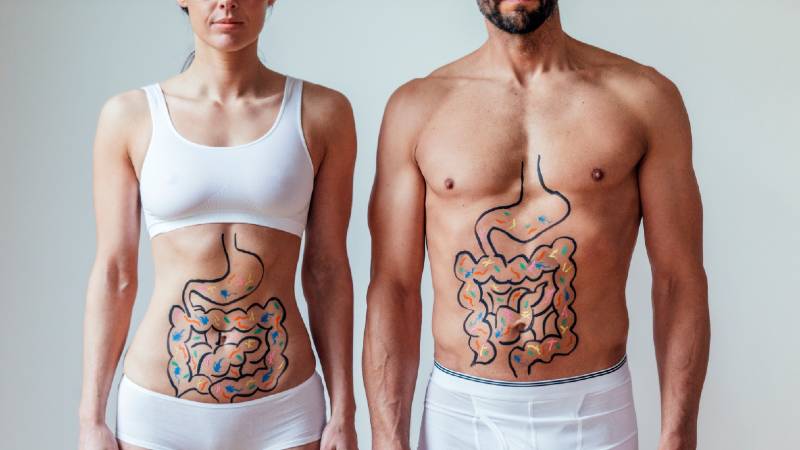Gut Microbial Community Makeover
"Their choices as adults [study group eating a plant-based diet] dramatically influenced their gut community."
"They all [research mice with transplanted human microbiota from high-calorie diet] responded in a predictable direction, but with not as great a magnitude."
"We know from previous work and other studies that spouses who live together will develop microbial communities that are similar to each other."
Nicholas W. Griffin, Washington University, St.Louis, Missouri
"When you look at populations that eat real food that's high in fiber, and more plant-based foods, you're going to see they have a more robust microbiota, with more genetic diversity, healthier species and fewer pathogenic bacteria living in the gut."
Meghan Jardine, registered dietitian, promoting healthy microbiota

Studies in mice suggest that gut bacteria can influence anxiety and other mental states.
Credit: Dreamstime
This being the case, it would make sense for people to understand that committing to altering their intestinal microbiota would be a positive and healthy initiative. Sounds good, but it does take the kind of single-minded commitment that requires people to resolve to change their diets in a way that might seem radical to them, if they're accustomed to eating more than they should, with a focus on meat and an aversion to plant foods like fruits and vegetables.
At the same time one's microbiome becomes habitually engaged; it has adjusted to recognizing and reflecting the diet that is established and it relies in that habitual process to determine the manner in which it absorbs and processes available nutrients. A new study has concluded that committing to a wholesale change in diet, however, to one with an emphasis on plant-based foods could be critical to attaining good health.
 |
Scientists undertook this study by harvesting gut bacteria from humans and then transplanting them into laboratory mice, feeding them one of two diets; high-caloric, or plant-based. The transplanted bacteria reflected the various types of diets that people followed specific to the individual, and they were quite different from one another. They were separated into groups consuming 3,000 calories high in animal fat on a daily basis, lacking fruits and vegetables.
While the other group was less focused on animal proteins, dedicating their diet to a mostly plant-based one, restricting their diet to consuming fewer than 1,800 calories daily. It was this second group that was found with a richer, more diverse microbial gut community, carrying strains of "good" bacteria whose presence is known in the promotion of health, and unique to a plant-based diet.
Once the human microbiota had been transplanted to the mice, they were permitted to eat the high-calorie group diet, or the calorie-restricted diet high in plant matter. Those mice with a microbiota conditioned by the high-calorie diet demonstrated a less robust response to the plant-based diet, their microbial communities failing to increase and diversify.
At the start of the experiment the test mice were maintained in separate cages. After which they were caged together, and as the experiment proceeded, the microbes from the communities that were conditioned by plant diets began to circulate within the high-calorie-diet microbiome. Mice habitually eat one another's droppings, so in this way the bacterial plenitude was shared.
When people live together in a family they tend to eat the same types of foods and end up with similar microbiota.
It may all, in the end, boil down to the need to eat foods that confer greater amounts of fiber to promote healthier microbiota, as suggested by Ms. Jardine, who has published articles promoting just that.
 |
To figure out how diet influences the microbiome,
scientists put volunteers on two extreme diets: one that included only
meat, egg and cheese and one that contained only grains, vegetables and
legumes. Morgan Walker/NPR
|
Labels: Diet, Health, Microbiota

0 Comments:
Post a Comment
<< Home